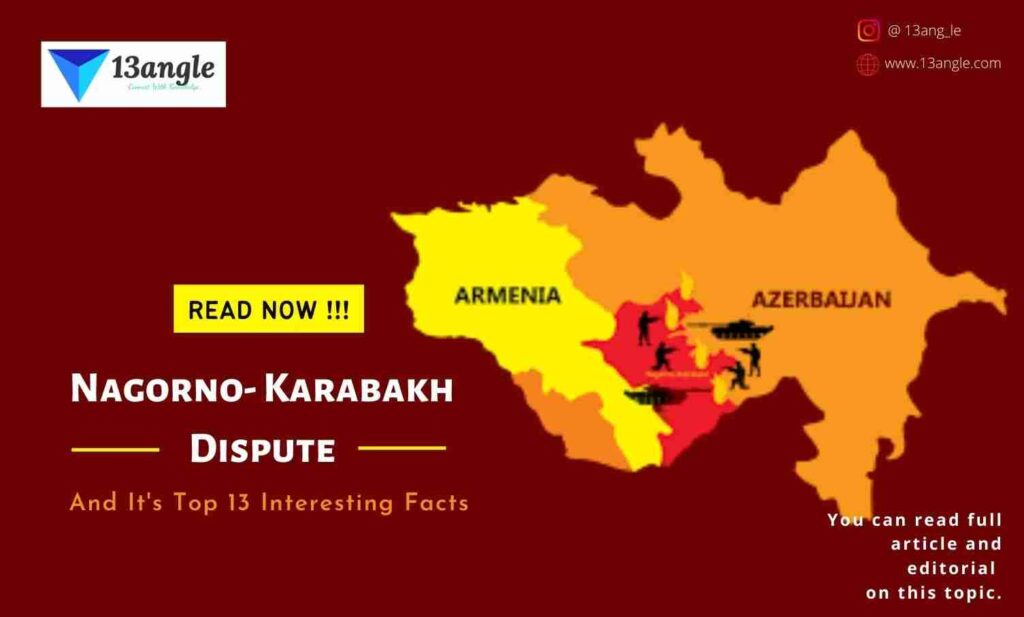Several countries and international organizations have shown clear diplomatic support for Azerbaijan in the crisis. Turkey and Pakistan are Azerbaijan’s most powerful diplomatic allies, with Pakistan being the only UN member state refusing to recognize Armenia’s independence in support of Azerbaijan. Azerbaijan is also supported by Turkey-backed Northern Cyprus (Turkish Cyprus). The Turkic Council and the Organisation of Islamic Cooperation (OIC) have regularly backed Azerbaijan’s position. Uzbekistan and Saudi Arabia, both members of these organizations, have regularly expressed support for Azerbaijan’s position. Lebanon, on the other hand, has refused to accept OIC resolutions that favor Azerbaijan.
Three post-Soviet governments with territorial issues have offered diplomatic assistance to Azerbaijan, specifically for its territorial integrity: Ukraine, Georgia, and Moldova. These three countries, along with Azerbaijan, make up the GUAM organization, which also supports Azerbaijan’s position in the format. Serbia openly supports Azerbaijan’s territorial integrity, despite its own territorial dispute over Kosovo. Despite their ostensible association with Armenia, they secretly back Azerbaijan’s position, particularly inside the Eurasian Economic Union (EEU) and the Collective Security Treaty Organization (CSTO).
Azerbaijan has received backing from both Palestine and Israel.
A truce brokered by Russia was reached in May 1994, and Armenia and Azerbaijan have been holding peace talks ever since, mediated by the OSCE Minsk Group (Russia, the United States, and France). Azerbaijan has accused the Minsk Group (Russia, the United States, and France) of being pro-Armenian on numerous occasions. When the OSCE chose France to co-chair the Minsk Group in 1996, Azerbaijan asked the OSCE to reconsider the decision since France was seen as pro-Armenian by Azerbaijan. Svante Cornell, whose Institute for Security & Development Policy is funded by the European Azerbaijan Society (TEAS), the official Baku lobbyist organization, said in 1997 that France, the United States, and Russia are “more or less predisposed towards Armenia in the conflict.” Azerbaijan accused the United States and France of bias in 2018 after Bako Sahakyan, the president of Artsakh, visited their nations.
Azerbaijan used mercenary pilots extensively. “Most informed observers assume that mercenaries pilot the majority of Azerbaijan’s air force,” according to HRW.
Chechen militants, Afghan mujahideen, members of the Turkish nationalist Grey Wolves, and the Ukrainian nationalist UNA-UNSO fought on the Azerbaijani side. Shamil Basayev, who later became Prime Minister of Ichkeria (Chechnya), and Salman Raduyev led the Chechen fighters in Karabakh. In 1992, Basayev famously took part in the Battle of Shusha. Ibn al-Khattab, a Saudi by birth, may have also joined them. The Hezb-e Islami, commanded by Afghan Prime Minister Gulbuddin Hekmatyar, was largely linked with the Afghan mujahideen. They were mercenaries, according to HRW, because they were “obviously not motivated by religious or ideological objectives.” Azerbaijani authorities disputed the recruiting of Afghan mujahideen, which was allegedly handled by paramilitary police chief Rovshan Javadov. They first appeared in Azerbaijan in the fall of 1993, ranging in size from 1,500 to 2,500 or 1,000 to 3,000. Saudi Arabia allegedly paid for them, according to Armenia. [319] During the war, the Afghan mujahideen formed the largest influx of foreign fighters. As of September 1994, approximately 200 Grey Wolves remained in the war zone, training Azerbaijani forces.

For deep details, you can read the full article. Click the link below :





